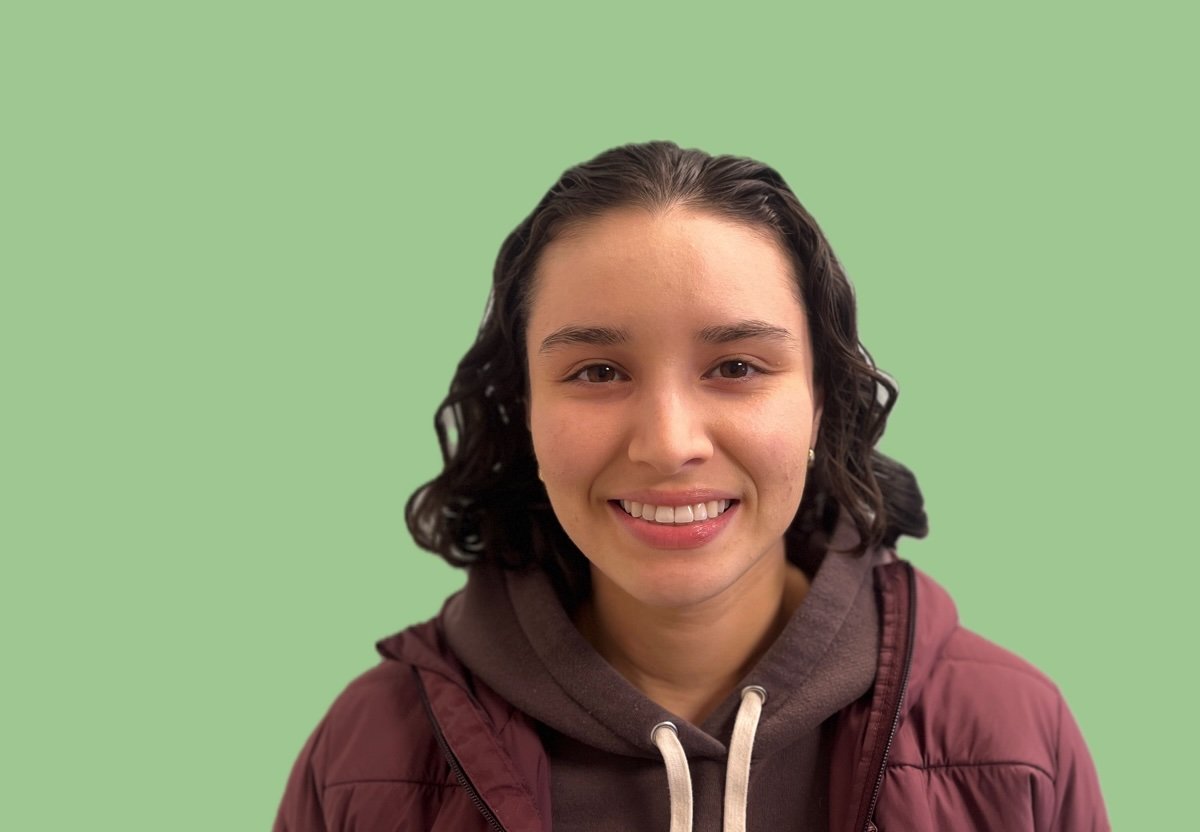Tutor Spotlight: Holton Huntington

Meet Holton.
We caught up with one of our expert tutors recently to hear about his experience tutoring students online. Holton offers personalized support for middle school and high school students, whether they’re preparing for the SAT or ACT, strengthening executive functioning and study skills, or drafting a college essay.
What's one thing you love about tutoring?
I love seeing the wide range of skills and interests students display, particularly when they apply their passions to our work. No one comes to a tutoring session as a blank slate - everyone has an important background that contributes to their academic story, and I find it rewarding to help students connect disparate parts of themselves to their studies.
For example, I recently worked with a student to augment their study skills. We needed to establish a connection between the rigorous structure of their part-time job, which they found useful, and the chaotic nature of their school curriculum, which they found overwhelming. Once this student was able to organize their schoolwork in a similar fashion to the structures they found useful in their job, their grades went up!
How do you keep students engaged in online tutoring sessions?
I started my teaching career at the beginning of the pandemic, which forced me to teach (and learn) over Zoom effectively. Student engagement was a constant struggle, and back in those early days, I had few tools at my disposal. Now, years later and with countless Zoom meetings under my belt, I have a wide range of activities, tools, and strategies to keep students engaged.
By far, my favorite is to integrate audio-visual elements into a lesson. Is my student presenting as disengaged? Let’s watch a video that highlights a particular topic in English. Is another student’s attention lagging during a lecture? Let’s use my tablet’s drawing tools to make a math problem more tangible. I believe there’s an online tool for every issue, as long as you’ve got the tenacity to find it.
What's one study tip every student should know?
Your most useful time is actually the time you don’t spend studying. Sitting and staring at a computer screen for hours can affect your eyes, your posture, and even blood flow to your brain. Get up to walk around and reset the mind is a critical strategy for success. But perhaps more important is sleep! I always recommend to that students should plan their entire day around eight hours of sleep. Easier said than done, but it makes all the difference to the learning process.
What was your favorite class in high school and why?
I was lucky enough to attend a high school with a blacksmithing forge, and I took three years of metalwork for art credits. I learned how to light a fire, make it hot enough to turn a piece of iron red, and use a hammer to shape and mold it into something beautiful – in other words, how to turn something imagined into something tangible. Even though I haven’t touched a forge in years, blacksmithing engendered visualization, planning, and execution skills I still use today.
share an example of a student you were proud of for reaching their goals.
I once worked with a student whose first language was Mandarin. Though they had been speaking English for years, they found reading and writing to be quite challenging – for example, it was a success to read an entire paragraph without stopping to ask for a word’s definition. It was discouraging for them to see peers reading and writing in English, seemingly without effort. However, this student never let this challenge stop them from showing up and working hard. To this day, I’m amazed at their resilience and determination.
What do you admire about your students?
I am consistently impressed with my students’ honesty and humility. Asking for help can be difficult, especially when asking someone you’ve only known for a few days. It takes a great deal of maturity to admit what you don’t know, and I try to acknowledge that fact verbally to encourage my students in their academic journeys.
Meet Mason. Thoughtful and engaging, Mason is an SAT tutor who brings both structure and warmth to his sessions. He’s worked with students in one-on-one and classroom settings, including at a premium tutoring organization in NYC, where his instruction led to high engagement and measurable score gains. Mason particularly enjoys supporting students who benefit from individualized approaches and flexible pacing. He spends his free time writing creatively and seeking out live music.
Meet Molly. Molly has always loved sharing knowledge and helping others learn. She first started tutoring nine years ago in high school, where she offered reading and homework help to elementary and middle school-aged kids. In college, she began to professionally tutor chemistry to high schoolers and fellow college students. She primarily tutors STEM subjects, including biology, physics, and all things chemistry!
Meet Jacob. With a degree in physics, Jacob boasts 4 years of tutoring experience in a peer setting. He strives to imbue his students with a deep conceptual fluency and understanding, using his own knowledge of the ACT and SAT to empower students to engage in robust and rigorous practice.
Meet Natalie. With over 10 years of experience as an educator, Natalie has an extensive background as an executive function and academic coach for high school and college students. She has also tutored writing at every level, from preschool to undergrad. She's gifted at meeting students where they’re at, supporting learning differences, and creating a caring learning experience.
Meet Shae. Shae brings nearly seven years of classroom experience to her work as an educator. She has ample experience supporting neurodiverse learners in subjects ranging from middle school social studies to college admissions essays, and is passionate about creating learning environments where students feel engaged and empowered.
Meet Ann. In everything she does, Ann brings a passion for language. As a former English professor, grant writer, environmental advocate, and creative writer, she's honed an ability to find the right words to move her intended audience. She knows finding your story isn't always easy, but it is possible – and can even be fun! She’s committed to helping students get past the challenge of a blank page and find their unique voice.
Meet Ben. Now in his eighth year with North Avenue Education, Ben tutors a wide range of subjects, including the SAT and ACT, AP History and Social Sciences, and graduate exams like the LSAT, GRE, and GMAT. He is passionate about teaching and finds it especially rewarding to watch students grasp elusive concepts - whether a theme in U.S. History, the properties of exponents, or how to identify necessary and sufficient conditions in logic – and apply them independently in new contexts.
Meet Casey. Casey specializes in science tutoring and SAT/ACT prep, drawing on extensive teaching experience to adapt to each student’s needs with patience and empathy. They build confidence and self-sufficiency by identifying strengths, addressing challenges, and making learning engaging – even sparking a passion for subjects students once disliked!
Through rigorous hiring, ongoing development, and long-term retention, we ensure students receive exceptional, personalized instruction from dedicated mentors who foster confidence and academic success.
Meet Riley. Riley is a seasoned educator with a master’s degree in English and over a decade of experience teaching and tutoring writing, critical reading, and standardized test preparation. Boasting extensive experience coaching SAT, ACT, and SSAT, Riley excels at helping students hone their analytical and time-management skills for success on test day. His patient, tailored approach ensures each student gains confidence and mastery in tackling complex material.
Meet Aster. A recent Physics graduate from Reed College, Aster boasts over 3,000 hours of professional tutoring experience, specializing in SAT/ACT test prep as well as AP Calculus and IB Physics. They bring a deep understanding of test formats and advanced subject material to yield an individualized approach to tutoring sessions. Aster’s teaching philosophy emphasizes clarity, compassion, and mutual collaboration to help students succeed in school and beyond.
Meet Chandler. A dynamic educator with over a decade of experience, Chandler specializes in helping students master science concepts and develop effective study skills. With a background in executive function coaching for neurodiverse learners, Chandler combines a passion for STEM with personalized strategies to help students stay organized, focused, and engaged.
Meet Maria. With a deep understanding of both foundational and advanced mathematical concepts, Maria is skilled at simplifying complex problems and making them accessible to students. She tailors her tutoring approach to meet the unique needs of each student, helping them build confidence and improve their skills. Whether working through fundamental concepts or preparing for more advanced topics, Maria is dedicated to providing clear and patient guidance to support student success.
Meet Alisa. She brings a compassionate and patient approach to tutoring. With extensive experience as a peer mentor and undergraduate teaching assistant, she excels in creating affirming learning environments tailored to neurodiverse students. Alisa’s academic background and dedication to inclusive education make her an invaluable asset to students striving to understand complex mathematical and scientific concepts.
Meet Arek. He specializes in nurturing the academic growth of neurodivergent students and those with learning differences. With a psychology degree and robust experience in diverse teaching settings (incl. chess and unicycling!), Arek brings patience, creativity, and a deep understanding of individual learning needs to each session. His gentle approach ensures that every student feels valued and empowered to succeed.
Meet Patrick. As a credentialed educator with extensive experience teaching AP subjects in the classroom and leading speech and debate teams, Patrick specializes in test preparation. His innovative teaching methods and commitment to academic excellence have consistently fostered high achievement, making him a trusted mentor to scores of high-performing students.
Meet Mamie. With a decade of experience, Mamie guides students in crafting impactful admissions essays. Having graduated with a degree in literature, she brings a love of language and narrative expertise to the coaching process. Drawing from her professional background in copywriting, manuscript editing, and journalism, her goal is to help students identify unique perspectives and hone their story.
Lee Ngo is a native Oregonian with a dynamic background spanning academia, technology, and media. As a lifelong learner, Lee is dedicated to projects that uplift historically excluded communities. His relatable approach integrates practical skills with pop culture.
Meet Aidan. A seasoned SAT and ACT strategist with a perfect GRE score, Aidan's approach is both systematic and flexible, adapting to the individual needs of his students, whether crafting comprehensive curricula or providing targeted tutoring that transcends traditional methods.
Meet Jameson. Jameson is a versatile and experienced educator, having coached both kindergarteners on skis and environmental science majors on the Missouri River. His work with diverse learners enables him to tailor his approach to each student’s needs and aspirations. Jameson’s goal is to kindle the sparks of motivation that drive success, improve thinking, and cultivate a passion for learning.
Finding the right tutor is no easy task. While it might be tempting to choose the first one you see on the internet, or perhaps the one with the lowest rates, there’s no guarantee that the tutor you find will have the knowledge, attitude, and organizational skills needed to help you succeed. Making the wrong decision can lead to disappointment and a lot of wasted time. At North Avenue Education, we’re taking the guesswork out of the process by compiling a list of the most important factors in selecting a tutor.
With over a decade of experience tutoring and a wide range of mathematics coursework under his belt, Chris prides himself in helping students bridge the gap between rote memorization and authentic mastery. He offers personalized support for his students, whether they’re preparing for the SAT or ACT, or strengthening their math skills.
Holton offers personalized support for middle school and high school students, whether they’re preparing for the SAT or ACT, strengthening executive functioning and study skills, or drafting a college essay.
Meet Isaac. Isaac offers personalized support for middle school and high school students, whether they’re preparing for the SAT or ACT, strengthening executive functioning and study skills, or drafting a college essay.
Meet Emma.We welcomed a new tutor to the team this year, and this Princeton graduate has been using her exceptional experience to help students navigate distance learning, overcome challenges and reach their academic goals. Now that she’s got some more North Avenue experience under her belt, we asked her a few questions about her work so far.

























